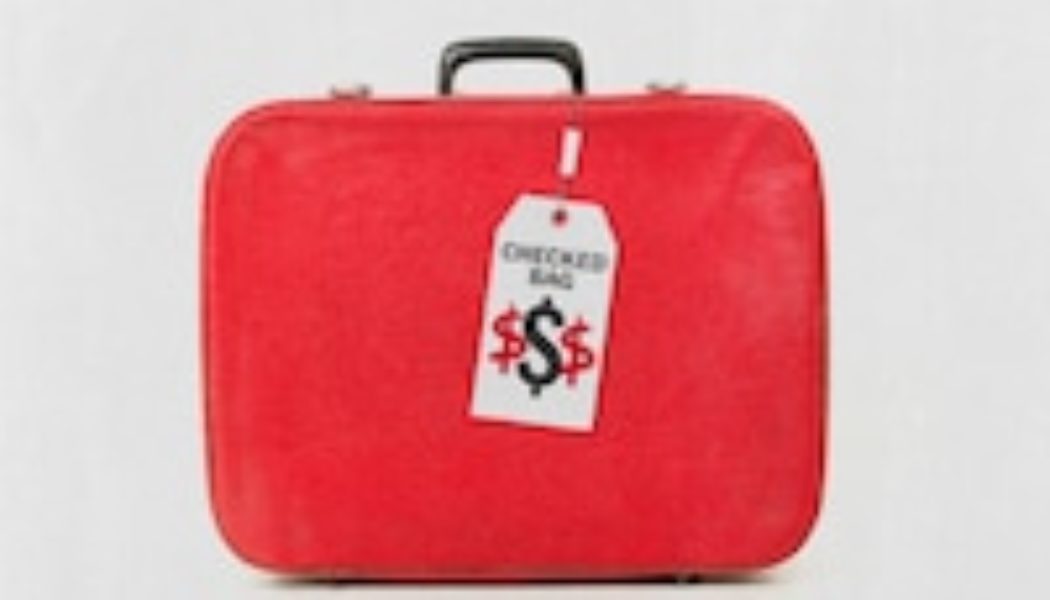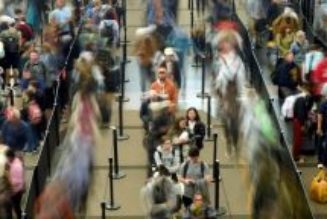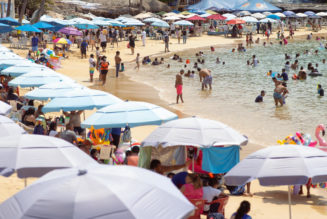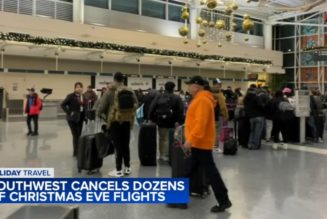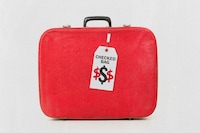
Flying with a checked bag just got more expensive on American Airlines.
The carrier announced Tuesday that the cost of checking a bag for domestic flights, which used to be $30, will increase to $35 if purchased online, or $40 at the airport. For a second bag, the fee is $45 — up from $40 — regardless of how it’s bought. The new prices apply to flights booked on or after Tuesday in the main cabin; bags in premium cabins are still free.
This is the first time American has raised its checked bag prices since 2018. It follows Alaska Airlines, which increased the cost of the first checked bag from $30 to $35 in January.
Scott Keyes, founder of the cheap-flight alert service Going, said he was not surprised by the move. In a list of predictions for the year, he said he expected multiple U.S. airlines to start charging more for bags.
“Airlines tend to move in packs, and so when one airline does something like increase their bag fees, a lot of other airlines see that as a signal that it’s time for us to increase our bag fees,” he said. “You don’t often see airlines — when it comes to fees — competing and driving the price down.”
JetBlue and United raised their fees to $35 for bags that were not paid for more than 24 hours in advance in early 2020, but kept the $30 price for those who paid ahead of time. JetBlue now charges $45 for the first bag and $60 for the second within 24 hours of departure; for those who pay more than a day in advance, the first bag is $35 and second is $50.
Delta charges $30 for the first checked bag. Southwest remains a holdout, allowing passengers to check two bags for free. There was one bit of good news for overpackers on American: bags that are only slightly overweight will cost less. Instead of costing $100, a bag that weighs between 50 and 53 pounds will cost just $30 extra.
American’s checked-bag increase comes amid broader scrutiny of so-called “junk fees” charged by airlines, credit card companies, ticket sellers and others and a push by the Biden administration for greater transparency.
Travelers once flew without paying anything extra for checking a bag. Airlines first introduced bag fees in 2008 as fuel prices soared; last year, they took in $33.3 billion in revenue from the line item, according to an estimate released Tuesday.
Jay Sorenson, president of the consultancy IdeaWorksCompany, which issued the estimate along with car rental technology company CarTrawler, said he didn’t think more airlines would follow American’s lead. He interpreted the move as a way to drive more people to sign up for the airline’s credit card; most cardholders get a free checked bag on domestic flights.
His report notes that bag fees typically encourage more fliers to bring carry-on bags, which “has become an operational challenge and customer pain point.”
Travelers often jockey for space in the overhead bins — or find themselves forced to check a bag at the gate, even if there is still space on the plane. That’s because airlines are trying to avoid delays as passengers work out the jigsaw puzzle-like logistics of fitting their bags in sometimes-small areas.
Keyes said the “most logical thing” would be for airlines to charge high fees for carry-on bags and lower prices for checked luggage, a tactic Spirit Airlines has embraced. While bag prices vary, a midday flight from Baltimore to Fort Lauderdale in early March shows a price of $61 for a checked bag during the booking process, while a carry-on bag would cost $69.
For travelers who don’t necessarily care if they have their luggage with them — but don’t want to pay a checked-bag fee — Keyes suggests bringing it along and waiting to see if the agent asks for volunteers to check their items at the gate.
“I would struggle to remember the last time I had a flight that did not have a gate agent asking people to check their bags to their final destination,” he said.
